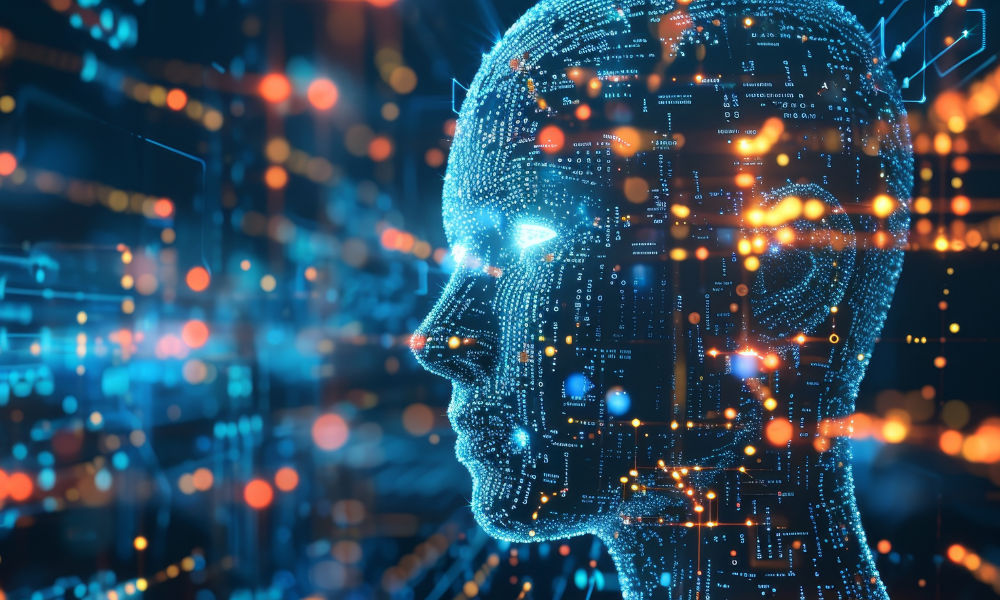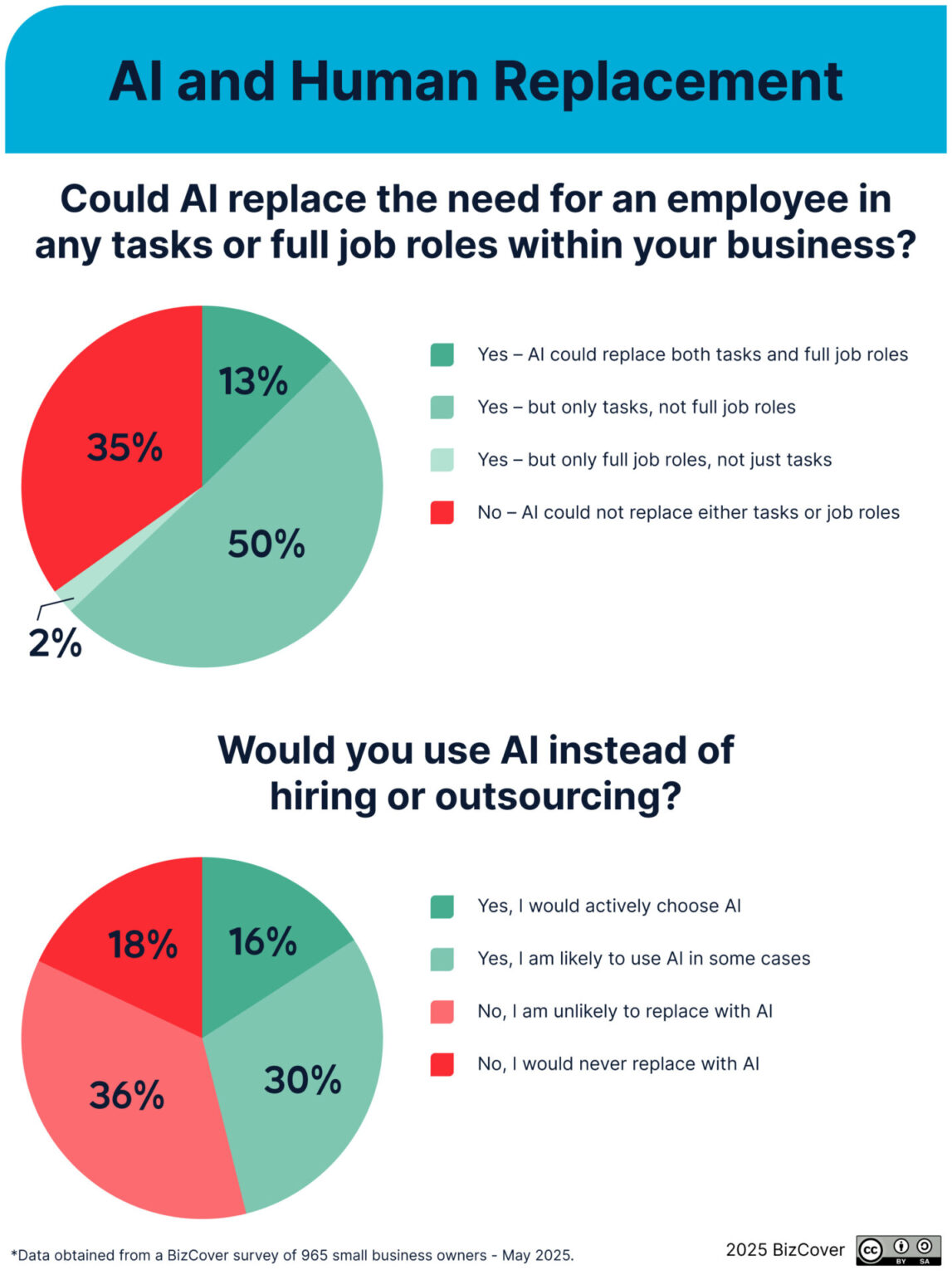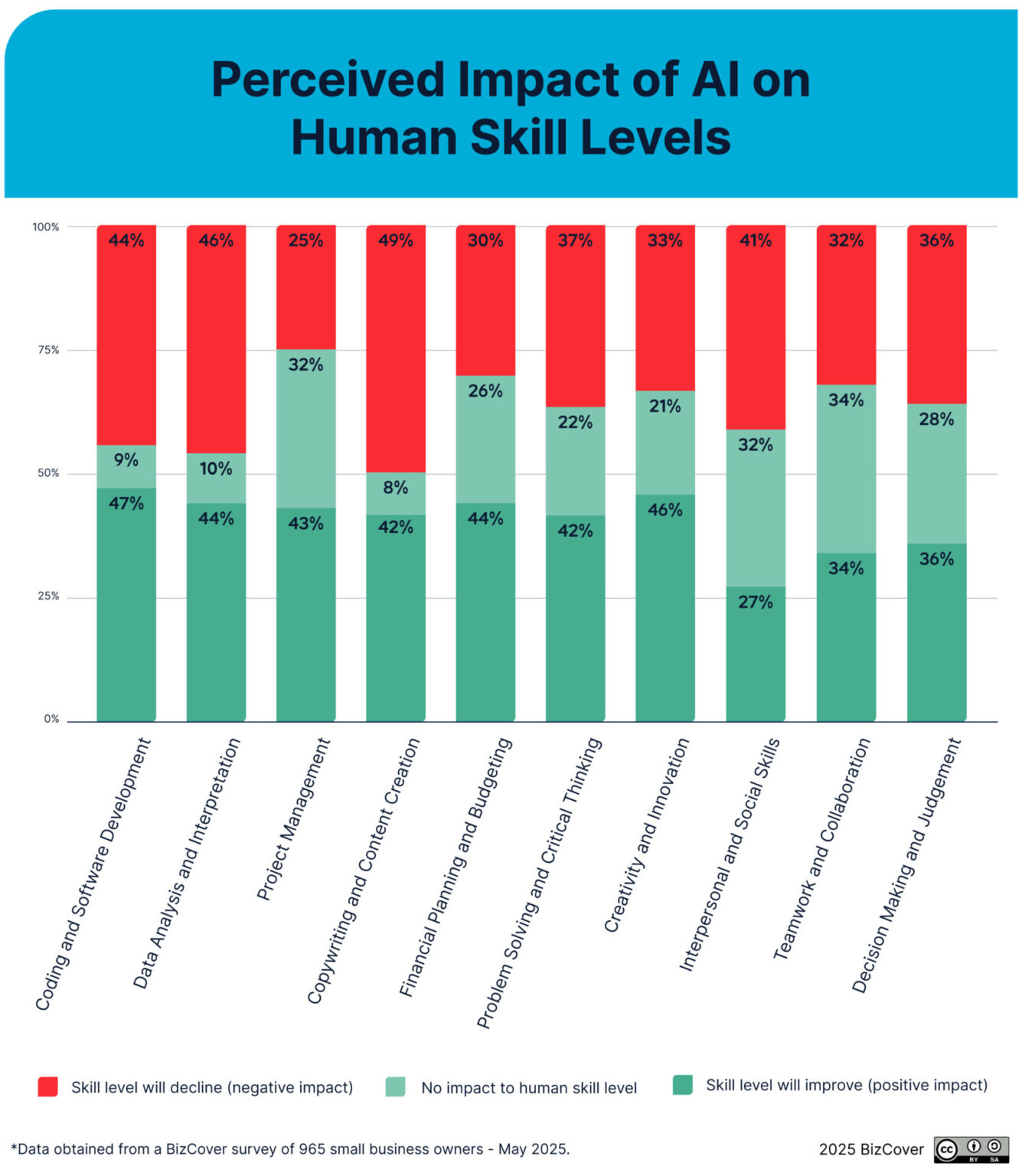
But they think it can take over some employees' work

Small business owners across Australia believe that artificial intelligence can take over some of their employees' tasks but cannot replace humans entirely.
This is according to the latest report from Bizcover, which found that 66% of 965 small business owners nationwide are now using AI some or all of the time. Another 14% also plan to adopt it within two years.
The report discovered that 65% of small business owners believe AI could replace some tasks, with 45% expecting the technology to reduce demand for some current skills.
But only 13% of employers think it could fully replace jobs, while only 16% are actively choosing AI over a human employee.

The findings come in the wake of widespread fears among employees that they could get laid off due to AI implementation, with organisations such as Amazon expecting workforce reductions due to the technology.
But Sharon Kenny, Head of Marketing at BizCover, said their findings indicate that small business owners in Australia view AI as an enabler rather than a threat.
"I don't think small business owners are looking to fully replace human skills," Kenny said in a statement. "But are looking for ways to enhance them."
According to the report, nearly half of small business owners believe that AI will improve creativity and innovation (46%), as well as enhance problem-solving and critical thinking (42%).
They are also optimistic that AI can improve growth and efficiency (66%).

The findings come in the wake of challenges in recruiting skilled talent.
Despite communication being the most sought-after skill among small businesses, 24% of employers said they find it hard to source employees with this skill, as well as problem-solving skills. Another 20% said they find it difficult to find talent with hard technical skills.
With these challenges in the backdrop, Kenny said small business owners are shifting away from AI anxiety to adaptability.
"They're leaning into the opportunities AI brings to upskill, streamline, and stay competitive," she pointed out.
HR managers should adapt training, recruitment and development programmes as AI becomes more widespread, according to the report.
With AI, automation, and data analytics skills needed to stay competitive, it urged organisations to have targeted, flexible education models that can equip the workforce to meet technological demands.